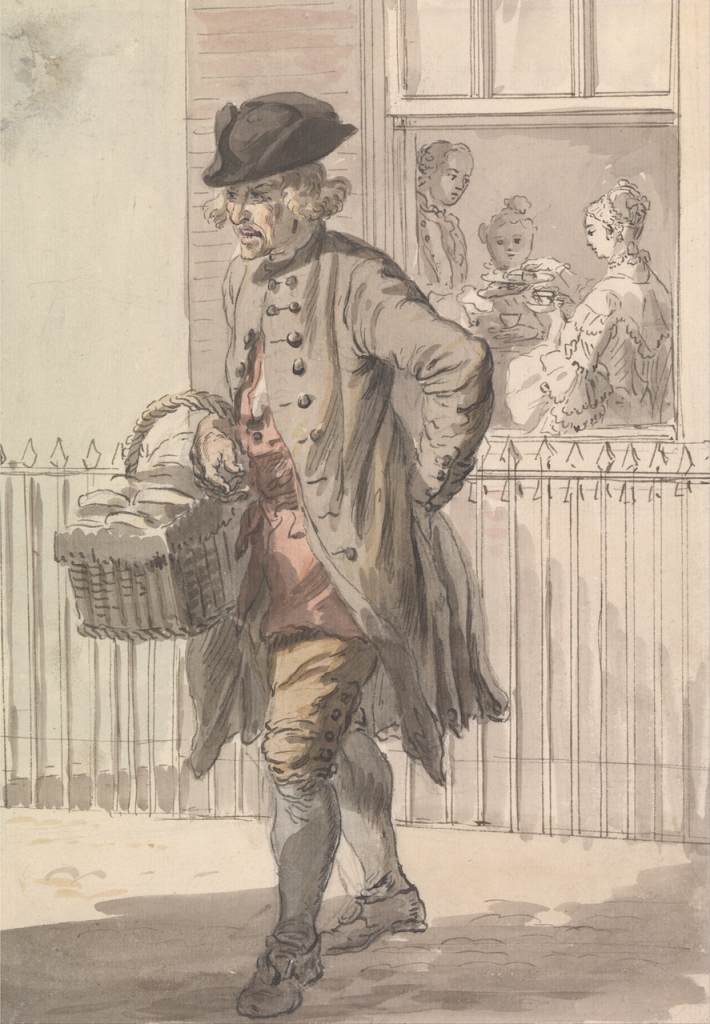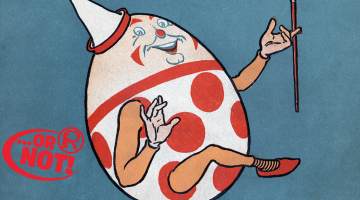Ah, the sweet melody of our childhood! But ever wondered if there’s a darker filling to this seemingly innocent pastry ditty? Let’s knead through the layers of this tasty tune and see what crumbs of truth we can find.
From oven to legend: The muffin’s true tale
Before we jump into grim tales, let’s establish who these muffin men were.
We do have records of the existence of muffin men during the Victorin period. The book “The Cambridge World History of Food” confirms that muffin men would deliver fresh food – and this included fresh English muffins (the bread-y kind, not their sugary American cousins) – straight to your door.

Credit: Wikimedia Commons.
This is because most homes lacked proper ovens during the 1800s, creating a prime market for these baked-good peddlers to walk around London with their melodic bell chimes. And Drury Lane, known for its theaters, may have had its own real-life muffin man, offering a warm bite to chilly Londoners.
From cobblestone streets to sing-along beats
Our beloved muffin rhyme didn’t just pop out of the oven. In fact, while you might think of the muffin song as a catchy childhood tune, the song had a more mature debut. Its roots trace back to the early 19th century, when a spicy tune about a certain “Dandy Muffin-Man of Drury Lane” was popular in some of London’s more, well, colorful and seedy venues.
Even royals weren’t immune to muffin melodies. In fact, a comic muffin song graced even royal ears in 1802, when a distinct, comedic muffin-centric song serenaded King George III right in court. While different in lyrics, it possibly sprinkled some inspiration over our now-known nursery rhyme. As the years (and centuries) went by, the song became part of party games and children’s games, eventually evolving into the rhyme we know today.
From its saucy stage origins, “The Muffin Man” would become a children’s favorite, living on through countless giggles and claps.
The Muffin Man’s Twisty Tale Unbaked
Now, here’s where our fluffy muffin tale gets a pinch of salt. Internet chatter suggests there’s a more sinister side to the muffin man. Was this cheerful song actually a grim warning? If stories are to be believed, the song is truly about Frederick Thomas Lynwood, aka the “Drury Lane Dicer,” a 16th-century baker turned serial killer. Legend has it that Lynwood used muffins tied at the end of a string to lure innocent children to their doom.
Another spicy version of the story pegs Lynwood not just as a serial killer, but also as a fierce competitor, kneading out rival bakers—literally.
If undocumented online sources are to be believed, the muffin man was never caught and died of old age while choking on a dumpling.
Sifting through the muffin crumbs
So, is there any truth to the story? According to Snopes, there’s no proof that a man named Frederick Thomas Lynwood ever existed, and there are no 19th-century records of child-related mass killings that fit the story or the time frame.
It’s much more likely that the Muffin Man’s origins are a blend of fact, fiction, and a sprinkle of urban legend. But isn’t that the true beauty of rhymes and stories passed down through generations? Whether a stage tune, a cautionary tale, or simply a song about a popular baker, this nursery rhyme has certainly left an indelible mark on our hearts and histories.
By Diana Bocco, contributor for Ripleys.com









